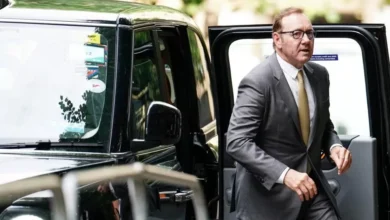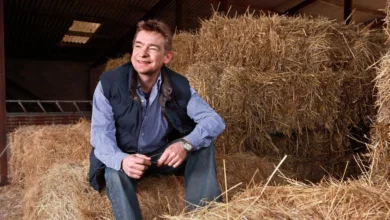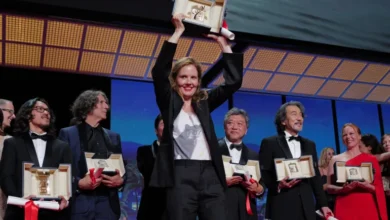Jafra Productions: Bringing Palestinian music, musicians to the global stage
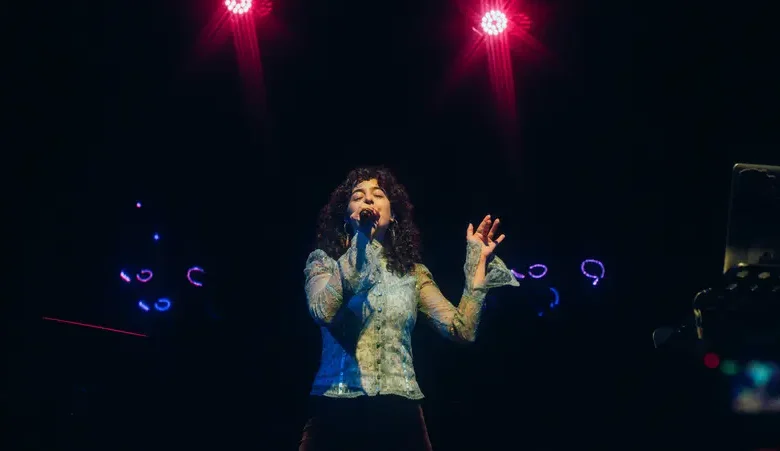
In the heart of Palestine, where melodies intertwine with history, Jafra Productions emerged with a singular mission – to uplift Palestinian music and forge connections with the world beyond.
Based in Ramallah, with its roots dating back to 2010, the independent label and artist incubator was founded by Samer Jaradat.
Since then, Jafra Productions has played a crucial role in shaping and modernizing the future of the Palestinian music industry.
“Building a music industry in Palestine is remarkably challenging, like carving in stone,” Jaradat said in an interview.
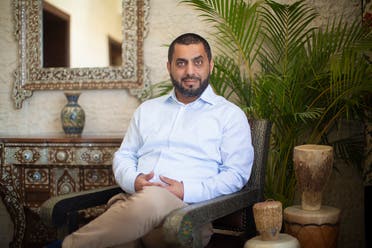
“We are up against big walls, from the complex political situation to social and economic hurdles. Imagine trying to create a thriving music scene in a place where basic elements like borders and a stable economy are visibly missing. It’s a daunting task, but we are committed to it as if it were the last thing we could ever achieve,” he said.
Music, especially in recent years, has become a sanctuary for Palestinians who want to have a way to freely express themselves, according to Jaradat.

The past twenty years have seen remarkable growth in Palestinian music internationally, with diverse and significant projects emerging.
“The world is starting to see Palestinian music as a new beacon of light, and through it, they are getting a glimpse of Palestine itself. It’s part of our DNA now – and we cannot stop,” Jaradat said.
Building bridges
This is where Jafra Productions steps in.
The company is building bridges for Palestinian musicians and music creators to step onto the global stage, with the goal of providing them with the infrastructure and support they need to be part of the international music market and take their rightful place in it.
“The key is to establish a professional music organization and instill this mindset in musicians who have got the talent but don’t have the means to take their talent to the next level,” the founder said.
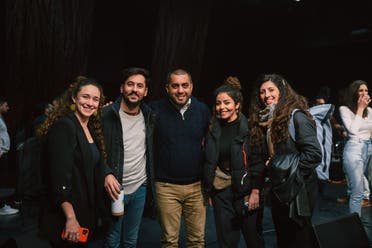
“Success for Palestinian artists shouldn’t hinge on politics or other factors. That’s a trap many fall into, promoting artists based on political or radical angles. This approach can limit artists, keeping them confined within Palestine’s borders. We aim to break these barriers and let their music speak for itself.”
Over the past 13 years, Jafra has played a pivotal role in various facets of the Palestinian music scene, organizing the first Palestine Music Conference in 2023 and being actively involved in shaping intellectual property laws to protect creators’ rights.
The organization is also dedicated to preserving Palestinian music through digital archiving and distribution.
Jafra has also been instrumental in integrating contemporary, technology-driven programs in Palestinian universities, such as Dar Al-Kalima University. Through the program, a generation of innovative and forward-thinking leaders are being nurtured.
Above all, Jafra’s mission is to cultivate a solid community, fostering relevant connections among music creators – a commitment that is evident in every initiative Jafra undertakes.
NEST – Palestine’s one and only music incubator – for example, has been a nurturing ground for over 350 emerging artists since 2010, offering them skills training, mentorship, and access to professional studios and equipment.
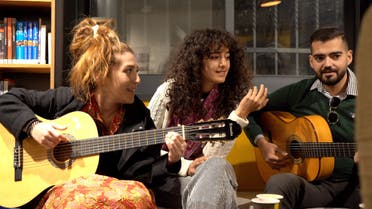
Then there’s the Technology and Music Innovation Program (TAMI), an academic trailblazer in partnership with Dar Al-Kalima University.
The first of its kind in the Middle East, the program helps foster a new wave of music entrepreneurs with appropriate knowledge and skills to match the educational standards in the West.
In only two years, the program, under Jafra Productions, has supported more than 15 innovative music industry projects and startups.
Jafra Productions is now also gearing up to launch GAZAL in 2025.
This new initiative will see the unveiling of a social digital platform that bridges music creators with their audiences, cultivating a supportive community for their artistic growth.
In the past 14 years, Jafra has produced and published 74 musical works, supported over 400 musicians, and promoted more than 40 music works involving over 250 artists from diverse backgrounds.
The company has organized over 750 top-tier music events, attracting nearly a million live audience members.
Beyond that, it has facilitated over 20 commercial deals for Palestinian musicians and bands, and creatively directed music for more than 10 dance and theater shows.
“Jafra is all about nurturing talent and connecting people through music, and we’re proud of the impact we have made,” Jaradat said.
Filling the gaps
The Middle East and North Africa’s music market is one of the fastest growing in the world.
The industry in the region is on an upward trajectory, with the data from the International Federation of the Phonographic Industry (IFPI) ranking it as the world’s fastest-growing music market in 2021, and ranking third in 2022, with 23.8 percent year-on-year growth.
Music streaming dominates MENA’s music market, holding a 95.5 percent share – the highest globally.
According to Spotify, music genres from MENA have grown by over 170 percent between 2019 and 2022.
During that same period, there has been an almost 40 percent increase in global streams of MENA artists during the same period.

However, a few gaps in the music industry remain, Jafra Productions’ founder said.
“For starters, there is a real need for laws and regulations to protect music makers’ rights. This is crucial. We also need independent organizations to manage these rights, which would greatly help the music scene flourish in the Middle East,” he explained.
“Another big area is education. Music curriculums in colleges and universities need an update to keep up with the times and market demands. It’s important to bridge the gap between what these institutions teach and what the industry asks for,” he added.
Arab artists also need to understand that their music has a unique identity, Jaardat said.
“Artists [need] to deeply understand and value Middle Eastern and North African music. This understanding gives their music a unique identity on the global stage and helps them steer clear of the risks that come with globalizing their music, which can sometimes lead to misunderstandings about their artistic intent. I could call it music gentrification, and that’s something we’ve been very cautious about.”
According to the founder, music in the MENA is still “fresh” and untapped on the global scale, leaving the door open for many opportunities waiting to be explored by stakeholders from abroad who want to set foot in the market.
Shifting perspectives
Social media has become a major player in bringing Palestinian music forward, acting as a powerful tool for artists and helping them reach audiences far beyond their local communities, Jafra Productions’ founder told Al Arabiya English.
“At Jafra, we’re focusing on guiding our artists to effectively use these platforms, showing them how they can boost their careers and spread their music globally,” Jaradat said.
“Yet, Palestinian musicians face challenges on social media. They often confront obstacles, from opposition to Palestinian content to limitations set by the platforms themselves. The algorithm seems to punish us, as well; this reality is tough but undeniable,” he added, joining hundreds of international activists who have called out social media platforms, such as Instagram, for shadow-banning pro-Palestinian content.
“Despite all of this, the creativity and resilience of Palestinian artists shine through as they continue to make their voices heard internationally,” the founder said.
The way the world sees Palestinian music is also incredibly important, according to Jardat.
“There is a thin line between two views. On one side, there’s respect for Palestinian music as worthy, and that deserves a spot on the world’s stage.”
This view supports Palestinian artists in honing their skills and creating music that resonates globally, Jafra’s founder said.
“On the other side, there’s a view that sees Palestinian artists as victims, suggesting their music should be heard just because they face tough circumstances. But this, I believe, can harm the artists and their work in the long run because it can shadow their true potential.”
However, in the past few years, many Palestinian artists have been making an impact internationally, not just because of their background, but because their music is genuinely good.
“Artists like Trio Joubran, Sama Abdel Hadi, Faraj Suleiman, DAM, and many others are perfect examples. Their success is a big reason why Palestinian music is gaining respect and appreciation worldwide,” Jaradat said.
“Today, the Palestinian music scene is vibrant, diverse, and full of talent. You’ll find a lot of styles here, and you’d, in fact, be surprised; each one telling its own unique story.”
